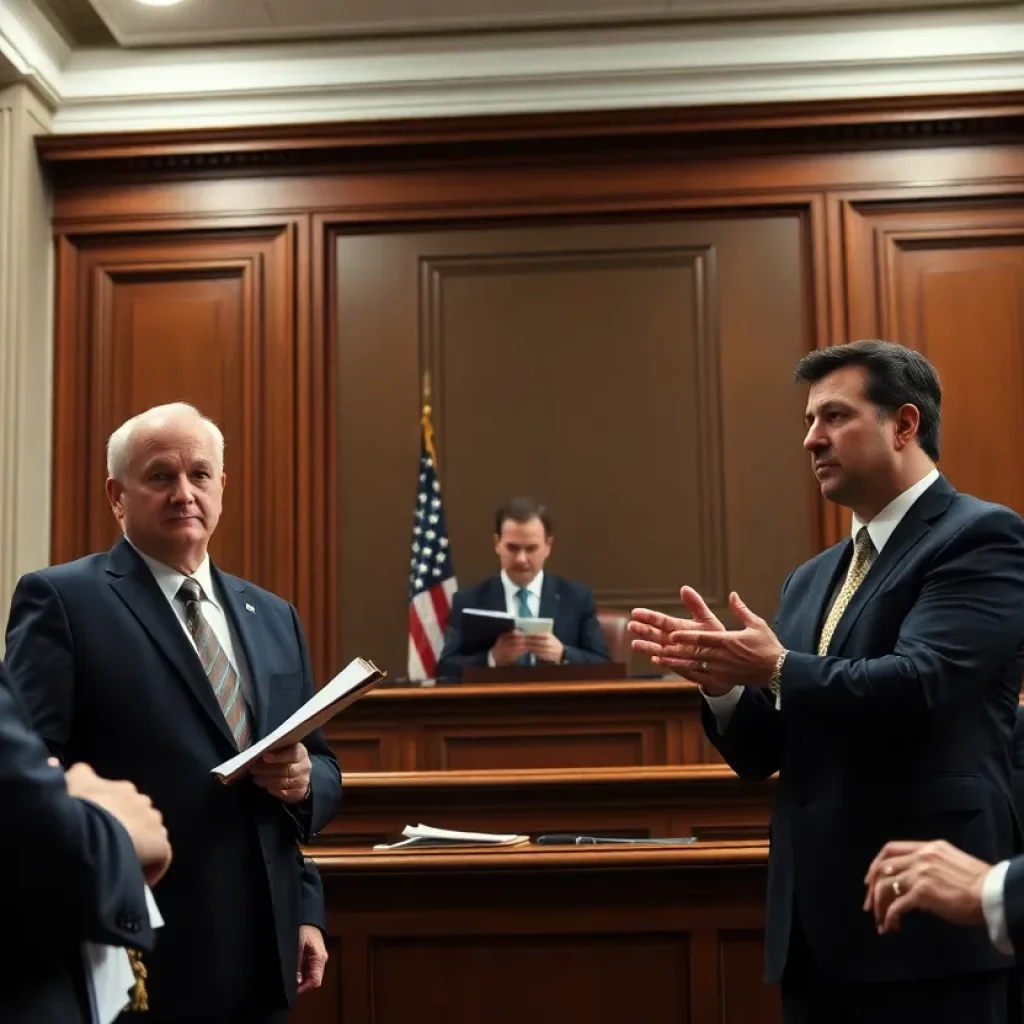News Summary
President Trump’s recent executive orders have heightened tensions in the legal community by specifically targeting law firms, most notably WilmerHale. This unprecedented move raises questions about legal representation and the consequences of political opposition. Prominent legal figures, including Paul Clement, are mobilizing to counteract these actions, sparking a wide-ranging debate about the implications for judicial independence and professional ethics within the legal system.
Trump’s Executive Orders Shake Up the Legal Landscape: A Target on WilmerHale
The legal community is abuzz as President Donald Trump launches a series of executive orders aimed at specific law firms, and the spotlight is firmly on WilmerHale, a Washington law firm. Known for its connections to the Democratic Party and involvement in liberal causes, WilmerHale is seen as the next target following the initial focus on the firms Covington & Burling and Perkins Coie.
The Onslaught Begins: Targeting Opponents
Trump’s executive orders aim to revoke security clearances and restrict access to government buildings for lawyers at firms that have taken a stand against him. This unprecedented move has raised alarms, as it appears to be a clear attempt to punish law firms that have opposed his policies and to send a chilling message to others contemplating similar actions. WilmerHale’s strong ties to former special counsel Robert Mueller add another layer of complexity to the situation.
Legal Response: Enter Paul Clement
To combat these executive actions, WilmerHale has enlisted the services of Paul Clement, a renowned conservative advocate and former Solicitor General. Clement was brought on board after Seth Waxman, a partner at WilmerHale, reached out to him to take the case. Clement’s association with high-profile legal matters, including cases concerning the Defense of Marriage Act and the Affordable Care Act, positions him as a formidable opponent to Trump’s agenda.
Judicial Intervention: A Temporary Win
Just a day after Trump’s executive order targeting WilmerHale was issued, Clement filed a lawsuit on behalf of the firm. U.S. District Judge Richard Leon delivered a temporary victory by blocking most of the order, citing the potential damage it could cause to the firm’s very existence. This ruling illustrates the severity of the situation, as the legal community grapples with the implications of these actions.
The Broader Impact on the Legal Community
The implications of these executive orders reach far beyond WilmerHale. Clement has articulated concerns that Trump’s actions are sending a message of intimidation throughout the legal community, which could threaten the efficacy of legal practice altogether. Legal analysts echo this sentiment, warning that such penalties may deter lawyers from representing clients who hold unpopular stances, which undermines the foundational principles of the adversarial legal system.
Other Law Firms Respond
WilmerHale is not alone in its fight against Trump’s executive actions. Jenner & Block, another firm targeted by Trump, has also filed a lawsuit, arguing that the executive orders are retaliatory and unconstitutional. The challenges posed by these orders have led to an outcry within the legal community, with numerous stakeholders drawing attention to the potential harm being inflicted on the rule of law itself.
Fear and Compliance: A Changed Landscape
The aggressive measures taken by Trump’s administration extend beyond law firms. Judges who rule against the administration have also found themselves in the line of fire, creating a climate of fear within the judicial system. As a result, many law firms are reassessing their strategies and client portfolios, with some reportedly agreeing to provide pro bono services to support Trump’s initiatives. This raises serious ethical questions about the integrity of the legal profession and the lengths to which firms may go to align with the current political climate.
Long-term Consequences
The fallout from Trump’s executive orders is likely to have long-term effects on the legal profession as a whole. Law firms may become increasingly wary of representing clients associated with controversial political issues, leading to a significant shift in how legal services are provided in the future.
As the legal community continues to digest the implications of these executive actions, one thing is clear: the clash between politics and the legal profession is reaching new heights, and the outcome of this battle could reshape the legal landscape for years to come.
Deeper Dive: News & Info About This Topic
HERE Resources
Lawyers Unite as International Students Face Visa Termination Crisis
Trump Administration Reinstates Legal Status for International Students
Lawyers Seek Answers in Trump’s Climate Grant Funding Battle
Oregon Lawyers Challenge Trump’s Tariff Policies in Portland
Supreme Court Deliberates Lawyer’s Arguments on LGBTQ Book Policy
Mass Self-Deportation Emails Shock Immigration Lawyer Community
Allegations of Mortgage Fraud Against New York Attorney General
Lawyer Letitia James Challenges Trump’s Allegations and Tariffs
Controversial Real Estate Deal Involves Attorney General
Lawyer Responds to Columbia Student’s Arrest Amid Activism Concerns
Additional Resources
- Hill Reporter
- The New York Times
- The Washington Post
- CNN
- Reuters
- Wikipedia: Executive Order
- Encyclopedia Britannica: Executive Order
- Google Search: Trump executive orders legal firms
- Google Scholar: Trump legal challenges
- Google News: Trump executive orders law firms
Author: STAFF HERE CHARLESTON
The CHARLESTON STAFF WRITER represents the experienced team at HEREcharleston.com, your go-to source for actionable local news and information in Charleston, Charleston County, and beyond. Specializing in "news you can use," we cover essential topics like product reviews for personal and business needs, local business directories, politics, real estate trends, neighborhood insights, and state news affecting the area—with deep expertise drawn from years of dedicated reporting and strong community input, including local press releases and business updates. We deliver top reporting on high-value events such as the Spoleto Festival USA, Charleston Wine + Food Festival, and the MOJA Festival. Our coverage extends to key organizations like the Charleston Metro Chamber of Commerce and the Charleston Museum, plus leading businesses in tourism and maritime industries that power the local economy such as South Carolina Ports Authority and the Charleston Visitor Center. As part of the broader HERE network, including HEREaiken.com, HEREbeaufort.com, HEREchapin.com, HEREcharleston.com, HEREclinton.com, HEREcolumbia.com, HEREgeorgetown.com, HEREgreenwood.com, HEREgreenville.com, HEREhiltonhead.com, HEREirmo.com, HEREmyrtlebeach.com, HEREnewberry.com, HERErockhill.com, HEREspartanburg.com, HEREaustin.com, HEREcollegestation.com, HEREdallas.com, HEREhouston.com, and HEREsanantonio.com, we provide comprehensive, credible insights into South Carolina's dynamic landscape.










